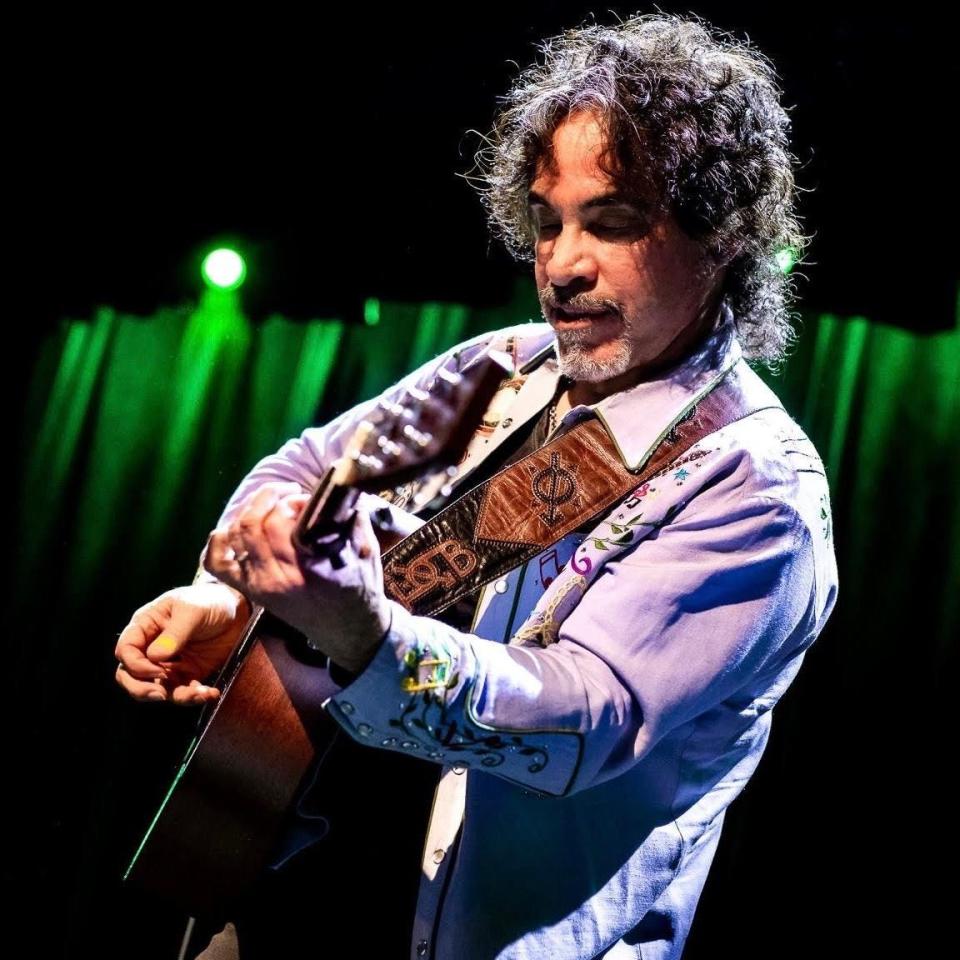How John Oates' move to Nashville 're-awakened' his desire to perform
John Oates is 75 years old and hasn't had "Private Eyes" watching him for two decades.
Frequently in Music City of late, though, at stages like the Grand Ole Opry and Country Music Hall of Fame's CMA Theater, his 60 years of professional excellence have been highlighted.
Defining the singer-songwriter by his catalog of hits (including "Private Eyes," "Maneater," "Out of Touch" and "Rich Girl") alongside Darryl Hall in their three-decade-long partnership limits his work both as a Brill Building-style songwriter before Hall and Oates and, for the past two decades, as a rock and Americana-influenced classic American songbook enthusiast.
Regarded in full, Oates' creative catalog is diverse and dynamic. It places him in a rare class of musicians adept at discussing the entirety of sounds and styles of popular music that define and sustain America's musical tastes.

Oates notes that his 2010 move to Nashville "colored and transformed" a full circle moment for his solo work.
"I've re-awakened the most essential roots of my desire to perform, play and sing," says Oates, whose teenage years in Philadelphia involved a passionate appreciation of early-era classic pop-to-soul crossover songwriting.
Nashville songwriters familiar with the Hall and Oates catalog were initially keen on having his pop sensibilities from four decades prior available in town. However, he's remained in rooms alongside artists such as guitarist James Burton, mandolinist Sam Bush, steel guitarist Jerry Douglas and legendary songwriter Jim Lauderdale because he's molded his core influences, iconic pop stardom and openness to progressive ideas into what he considers an "astounding" career at-present.
"Being creatively freed of perpetual connection to my hits while still retaining the power of my legacy is a satisfying feeling," Oates says.

Oates' artistry has emerged beyond responding to a constant need to satisfy major label executives and bottom-line economic goals for the mainstream music industry.
Instead, he offers that currently, he's more motivated by servicing people's "everyday lives" via "universally relatable songs that discuss the uniqueness of the common American experience."
"Be they from the Carter Family and Jimmie Rodgers or Megan Moroney's 'Tennessee Orange' (I'm a college football fan and I understand that song's appeal immediately), there's a century of unpretentious, clever and well-crafted homespun wisdom in Nashville's best-written lyrics that tells a story that, when added to a hook and groove, creates a consistently high level of work," Oates says.
Oates feels that modern technological and social advancements have recalibrated expectations of mainstream art.
The result is a music industry that, since the advent of the phonograph and radio up to the rise of streaming, has in each progressive generation weighed style significantly more impactful than substance.
Such a small, concentrated "mainstream," however, allows for an unprecedented large and "passionately dedicated" musical "underground" wherein the level of technical skill and craft is "off the charts," he says.
Notably, Oates' previously mentioned renown occurred in the 1980s. Concerning his previous statements, the era was primarily defined by an increase in style over substance that preceded the domestic music industry's greatest-selling two-decade period, between 1995-2005.
Songs he had a hand in writing, especially on Hall and Oates' breakout superstar albums "Private Eyes" (1981) and 1982's "H2O," fall directly into a catalog of music that counterbalances his current success.
For Oates, creating confidently self-produced music that reproduced the energy of live music allowed well-written songs aimed at commercial success, like the reggae-turned-Motown pop song "Maneater," to thrive.

Whether crafting material with Americana icons, making legendary top-40 records, or reflecting on the longevity of the American songbook's appeal, Oates arrives at the same response when contemplating what has allowed for the longevity of his career-long flirtations with curiosity and critical acclaim to persist.
"Next to modern democracy," he says, "America's legacy of ubiquitous, standard of excellence-setting popular music is its most significant export to the world."
This article originally appeared on Nashville Tennessean: Why move to Nashville keeps John Oates a musical force

